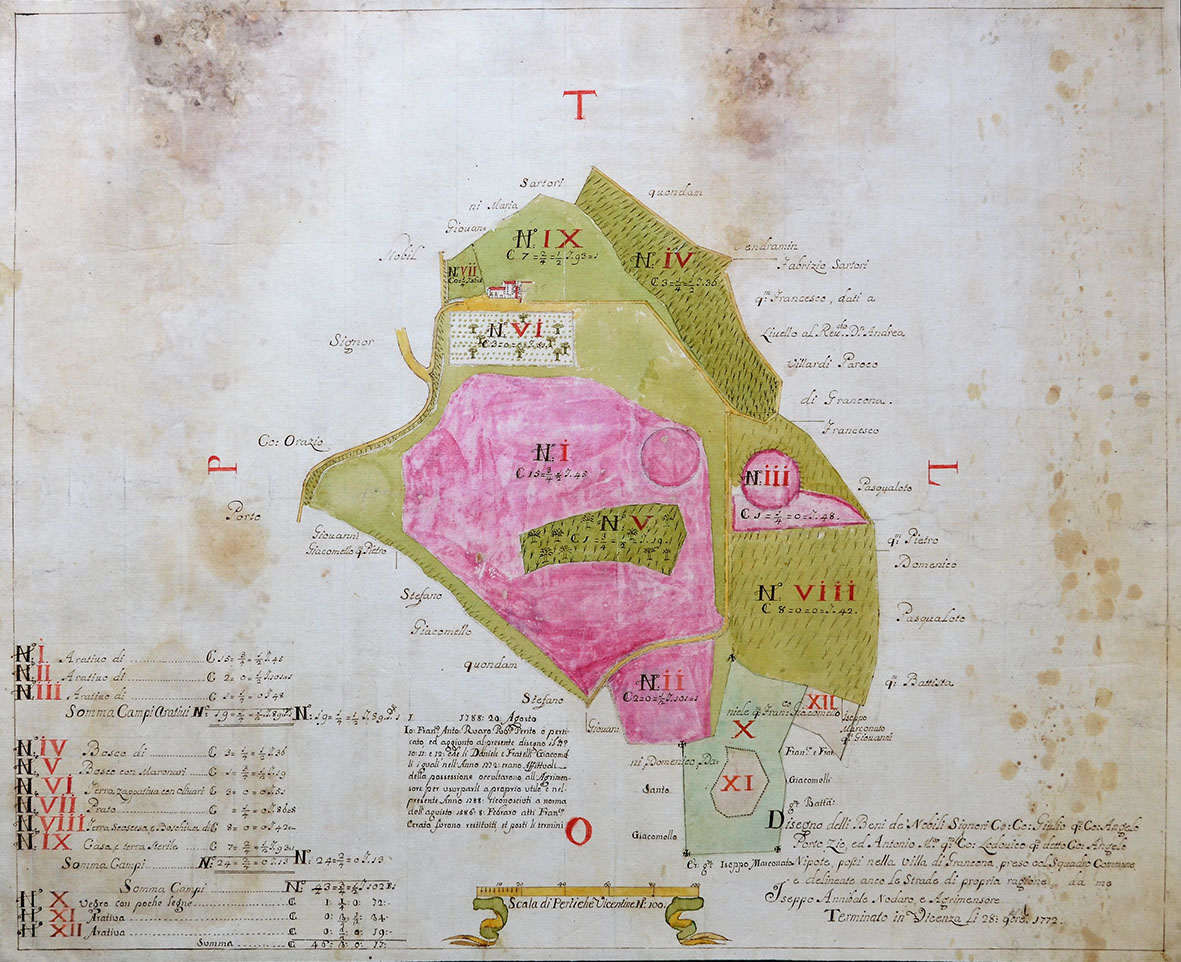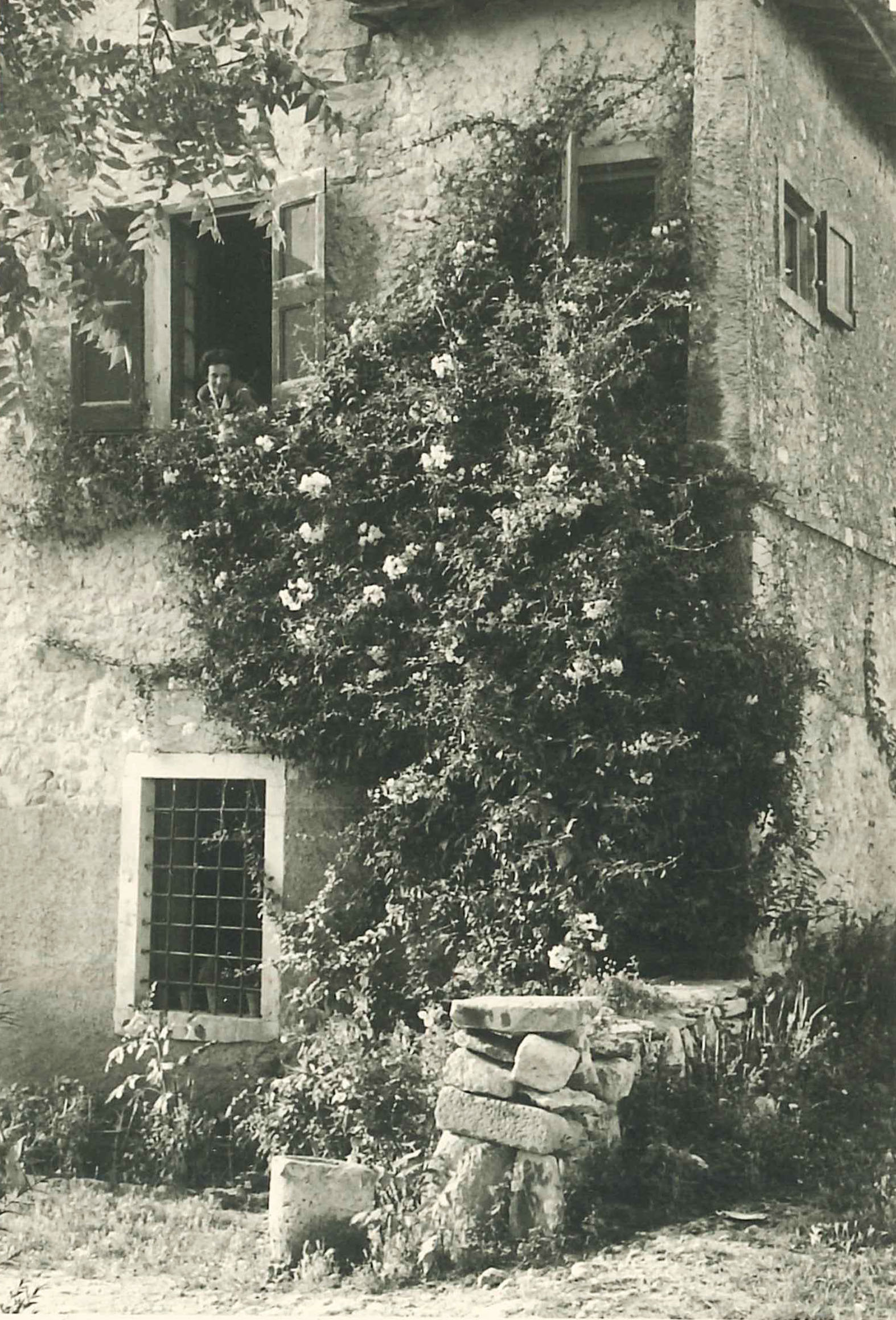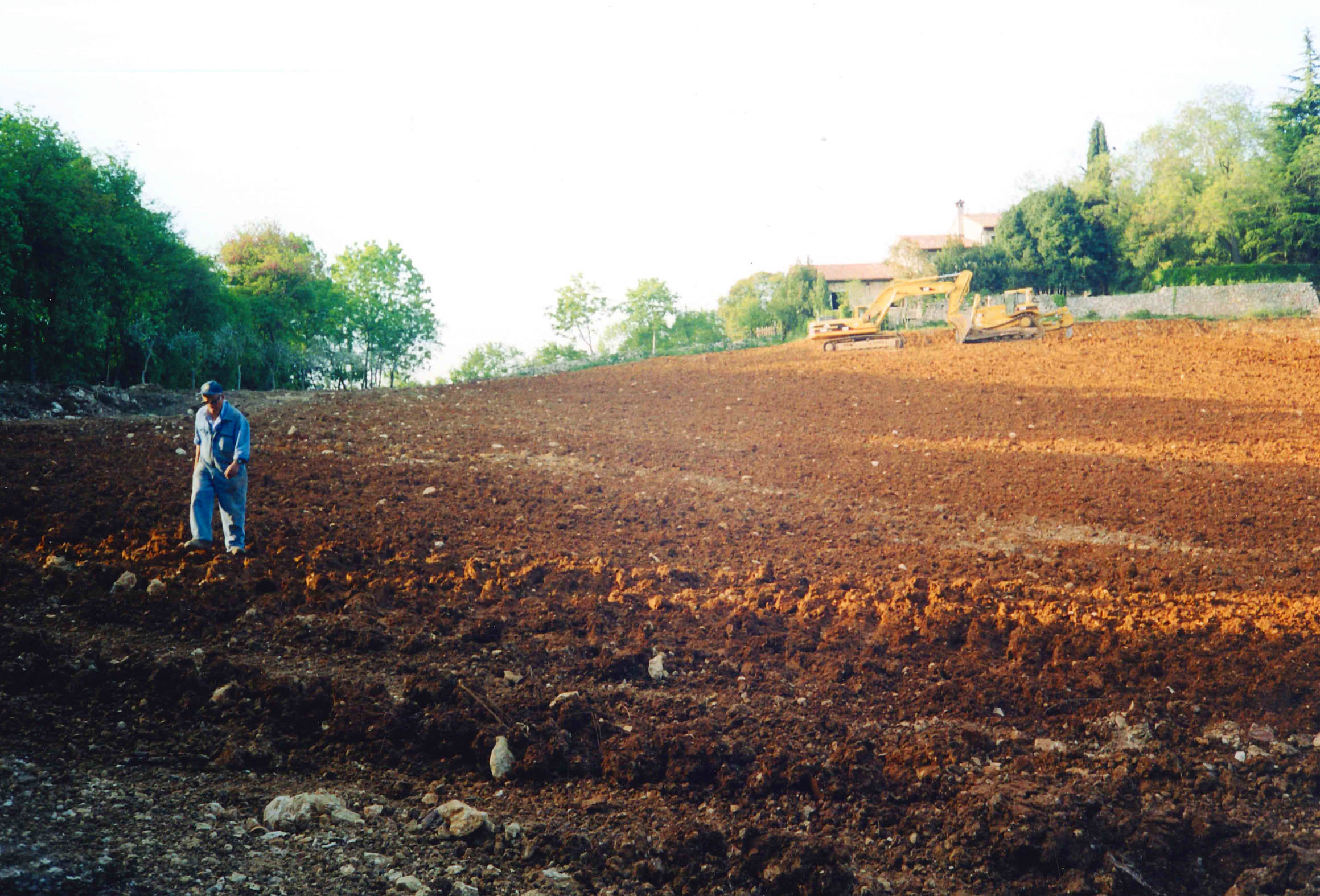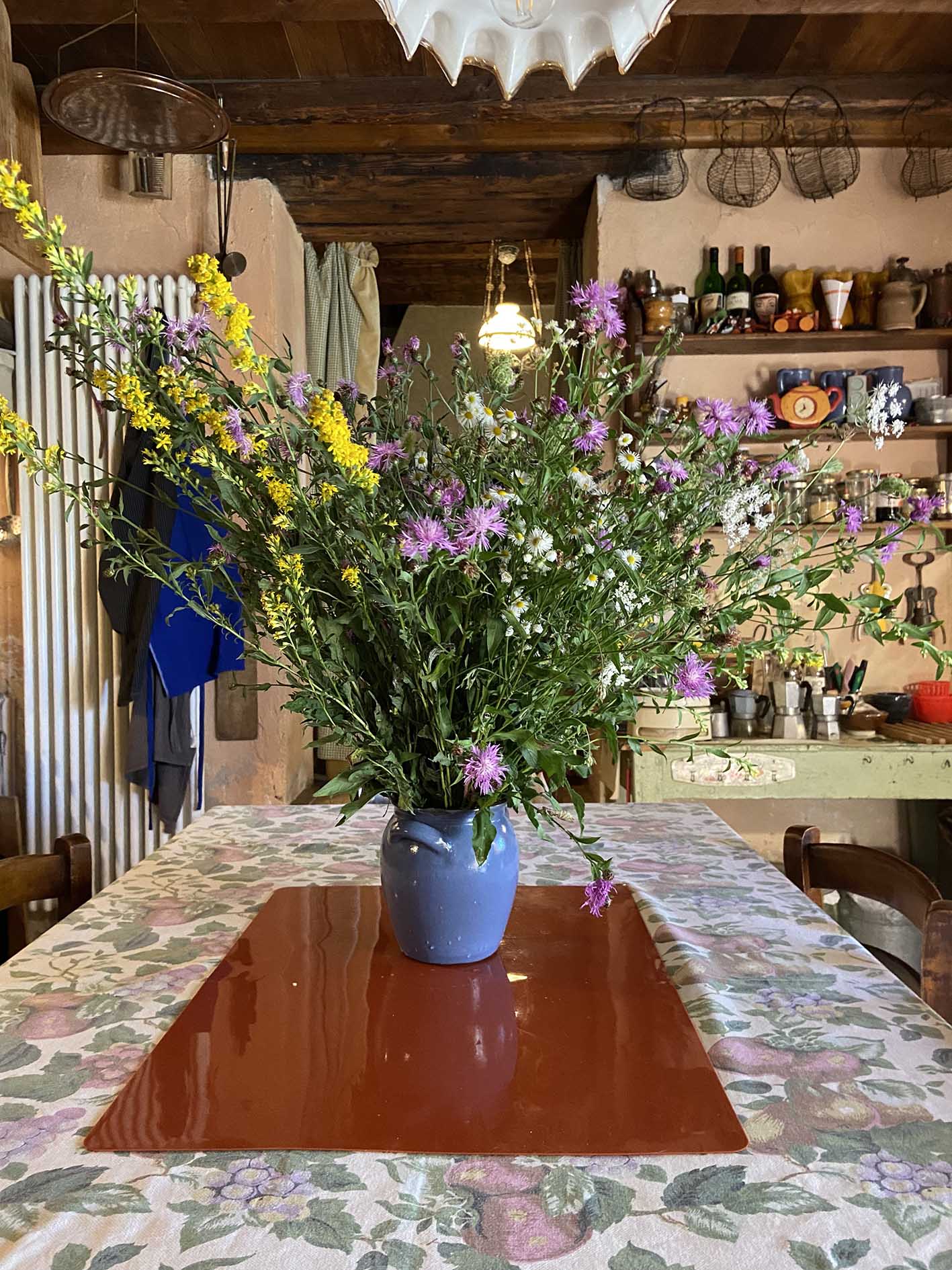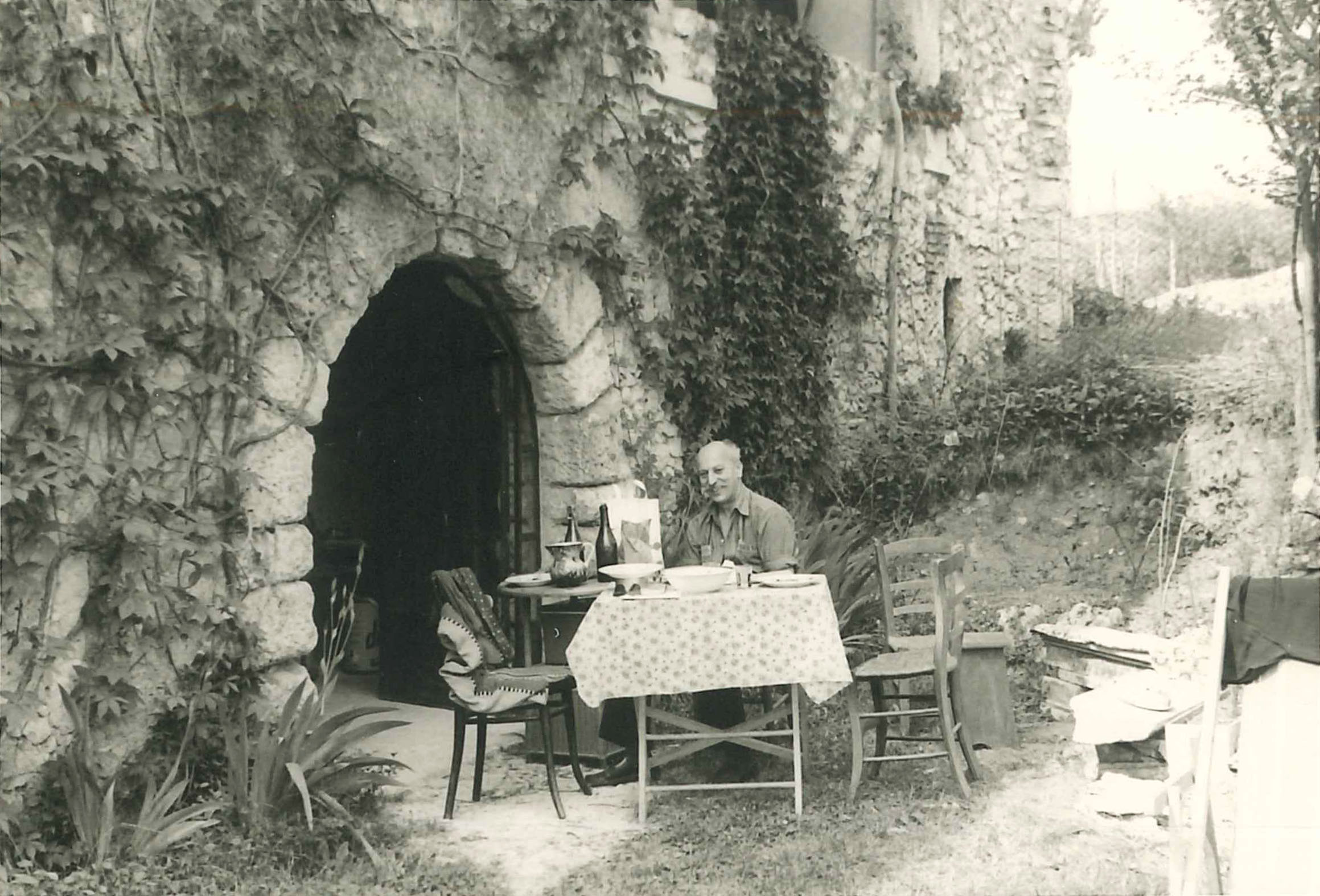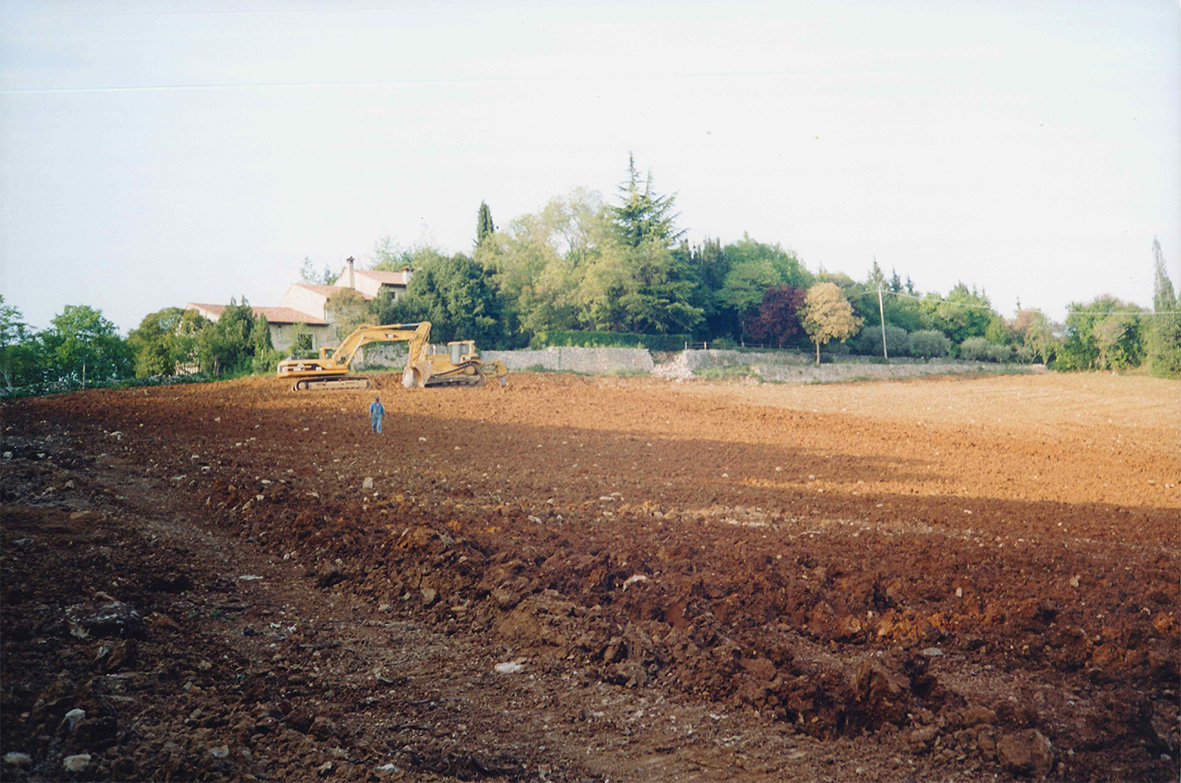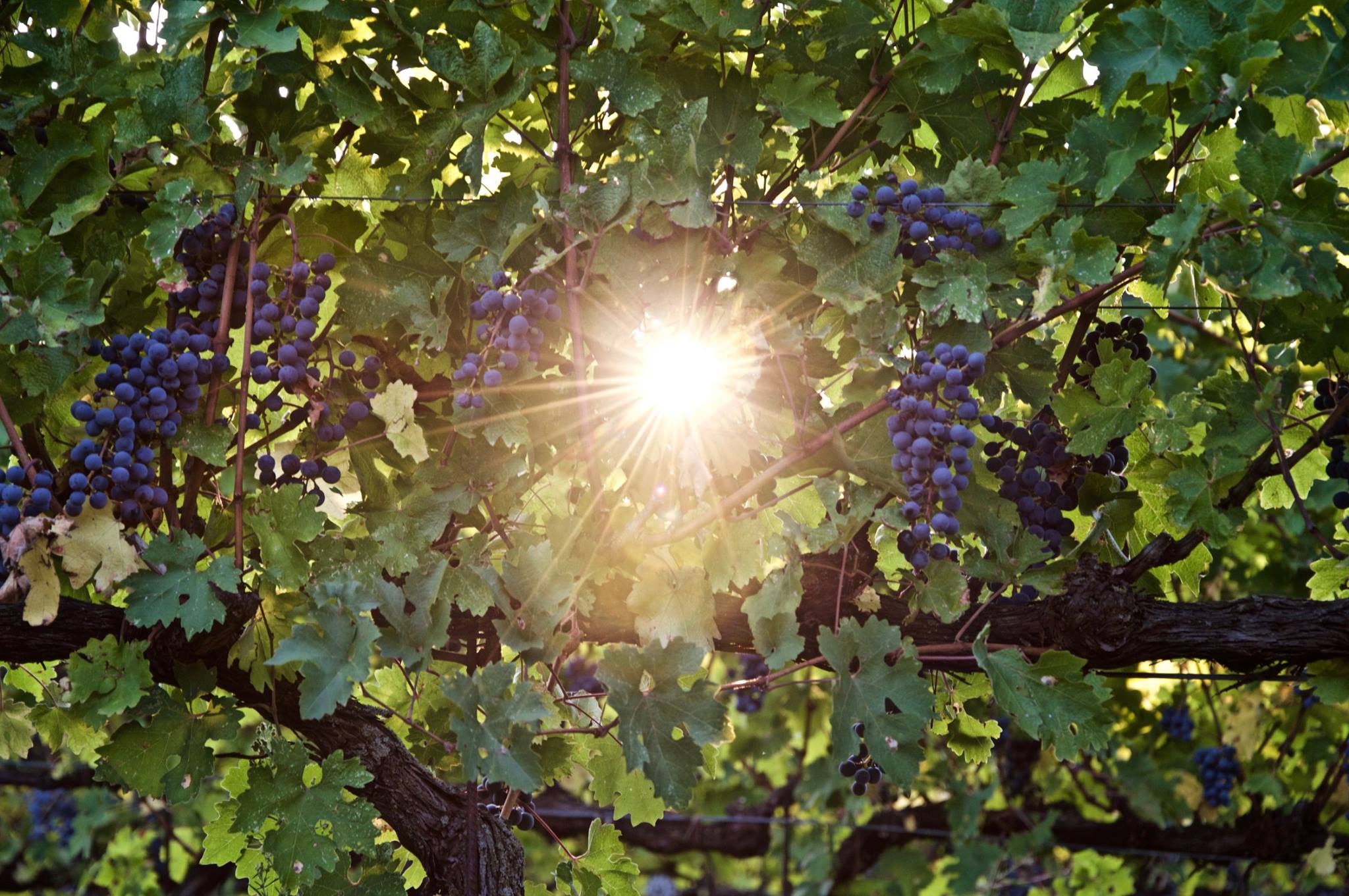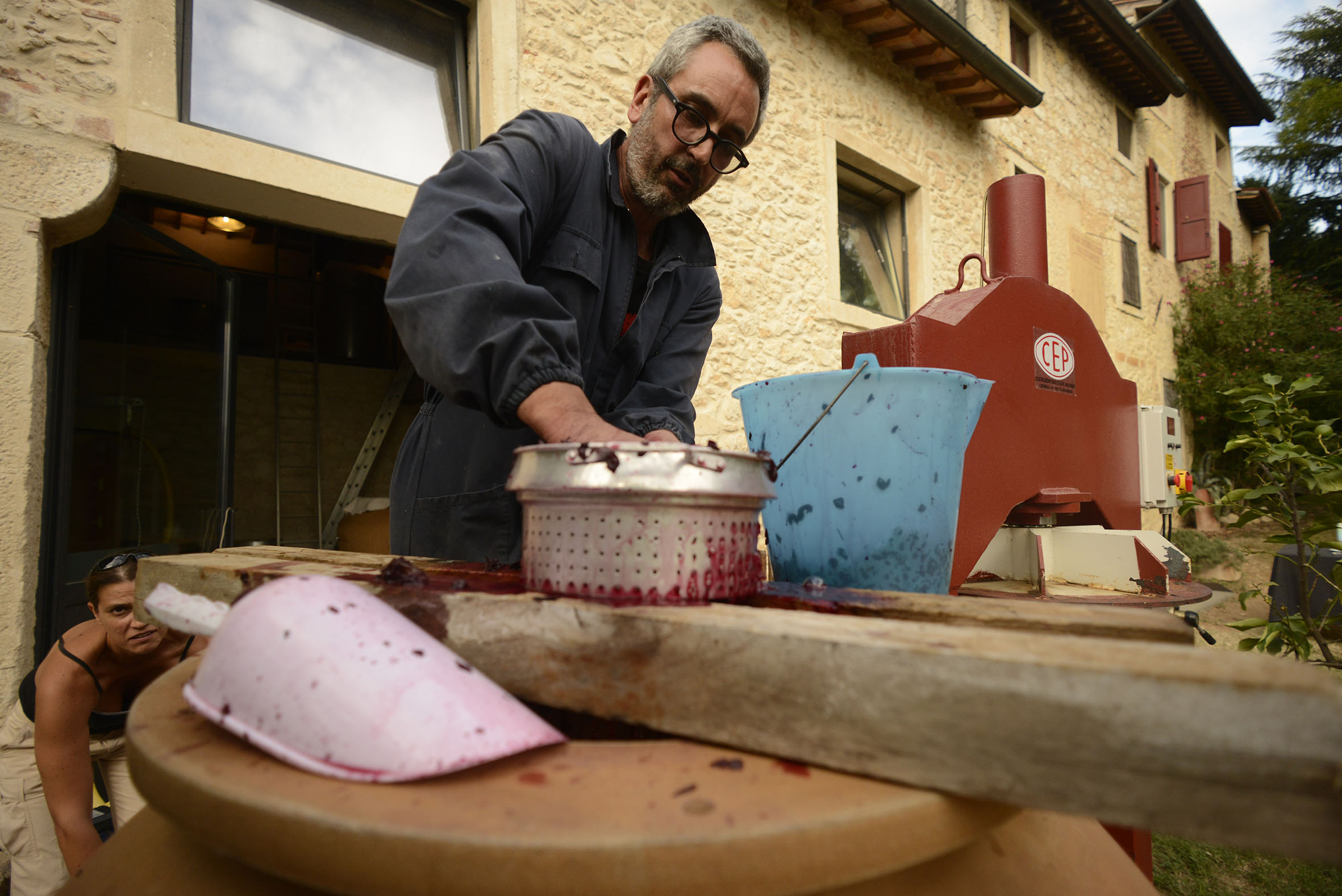The house and current home of the “Cantina Matteo Rigoni” was built in 1608 by Cleric Giovanni Porto, who was of a very important noble family from Vicenza who had many palaces and properties in Vicenza’s centre.
It was immediately destined to host a congregation of Margheritoni monks who were inspired by the reformed teachings of the Venerable Antonio Pagani, a singular religious figure with a vocation for asceticism and hermitage as well as the foundation of minor orders.
The house remained property of the Porto family until about 1910, when a member of the Girotto family from Vicenza purchased it. Matteo Rigoni, the wine-maker and owner of the estate, is a descendant of the Girotto family by way of his mother. Thus, since 1608, the house has remarkably been in the hands of only two families.
In the area around the house there was an old but dignified vineyard of Pinot Grigio which was explanted in 1993. In 2004, in the context of some re-planning of the land, the vineyards were re-planted, this time with Merlot, Cabernet Sauvignon e Sauvignon Blanc. By now we have also added some Manzoni Bianco and Chardonnay. The choice of international varietals (as opposed to the ones often grown locally) is linked with the idea that these particular varietals grown on the actual terrain here create a wine that is unique (relative to the standard idea of these varietals grown in other countries) and very well-matched with the terroir. Thus these varietals were preferred over the (very wonderful) varietals normally grown in the Berici Hills, as they are a vehicle to produce a final product which pursues a precise organoleptic profile which valorises both the land and the fruit.
We managed the vineyards conventionally for a few years, given that for a few generations the family was in the agriculture and farming business and that is how things were done. But the land speaks for itself – all one has to do is to be ready and willing to listen to it. Only a short time was needed until the instincts and convictions that certain products – especially chemical herbicides – shouldn’t be used were followed: the elusive “perfectly clean vineyard” hides an insidious degradation of the symbiotic microcosm of flora and fauna that should exists around the vine. So it is for this reason that since around 2012 we run things organically, and are now certified organic.



